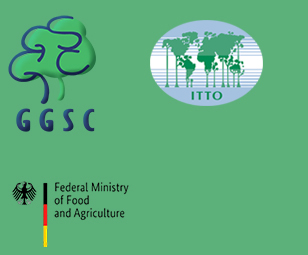
Brazil
Brazil’s cultivated tree industry sets record trade surplus in 2024
Brazil’s cultivated tree industry posted record-breaking results in 2024, reaching a trade surplus of USD 15.7 billion, up 23.5% compared to 2023, according to Mosaico Ibá, a bulletin from the Brazilian Tree Industry (Ibá).
The sector’s performance was led by strong global demand for pulp, which saw a 33.2% increase in exports, totaling USD 10.6 billion—a new high.
Other forest-based products also surged: wood panels rose 36.6% (USD 409 million), plywood grew 22.6% (USD 793 million), and paper exports climbed 4.6% (USD 2.5 billion). On the production side, Brazil set records with 25.5 million tonnes of pulp (+5.2%) and 11.3 million tonnes of paper (+4.6%).
China remained the top buyer, importing USD 4.8 billion (+20.8%), with 96% of that in pulp. Yet Europe and North America posted stronger relative growth: Europe rose 45% to USD 3.6 billion, and North America jumped 24% to USD 3.5 billion—led by rising demand for pulp and wood products.
Brazil's furniture and mattress exports increase by 5.5% in the first quarter of 2025
According to information from the official website of the Brazilian Furniture Industry Association (ABIMÓVEL), from January to March 2025, the total export value of finished furniture and mattresses from Brazil reached $173.23 million, a 5.5% increase compared to the first quarter of last year. February and March saw strong performances, with growth rates of 31.5% and 15.4%, respectively.
The United States remains the primary export market for Brazil's furniture industry, with exports to the country amounting to $48.2 million in this quarter. Although this figure is lower than the same period in 2024, it still accounts for 27.8% of Brazil's total furniture exports during the same period.
Other markets are also becoming more prominent. Neighboring South American countries have shown strong performances, such as Uruguay ($18.2 million), Chile ($12 million), Peru ($8 million), and Paraguay ($6.2 million). Some European markets have also performed well, such as the United Kingdom ($11 million) and France ($6.5 million). Overall, the data indicates that Brazil's furniture industry is continuously working to reduce its dependence on a few markets and expand its global influence.
Mexico
Mexico faces billion-dollar challenge to fund climate goals
María del Carmen Bonilla, Head of the Public Credit Unit and in charge of International Affairs, Mexico’s Ministry of Finance (SHCP), stated that Mexico requires MX$1.7 trillion annually to meet its climate change mitigation and adaptation commitments. Moreover, she estimated that by 2030, the required financing will rise to MX$13.6 trillion.
She also noted that by 2025, 84.5% of the federal budget will be linked to at least one SDG, such as health, education, reforestation, or water, among others.
Senate Committee approves reforms on climate and forest policy
The Senate’s Second Committee on Legislative Studies approved five legislative reforms aimed at strengthening national frameworks on climate change, environmental budgeting, forest ecosystems, public space accessibility, and environmental recognition.
The first reform amends Articles 30 and 106 of the General Law on Climate Change to require authorities at all levels of government to consider socio-cultural and gender-specific conditions in the implementation of climate-related plans and programs.
The second reform modifies Article 64 Bis of the General Law on Ecological Balance and Environmental Protection. It directs federal, state, and municipal governments to ensure that annual budget allocations for environmental research, development, innovation, and technology transfer are not reduced from the previous fiscal year.
Another approved initiative revises the General Law on Sustainable Forest Development. Article 26 now includes the Ministry of Science, Humanities, Technology, and Innovation (SECIHTI) among the agencies responsible for forest-related activities. Article 139 designates the Mexican Forest Fund as an instrument for advancing forest research and innovation, while Article 143 promotes actions to manage fire, pests, diseases, and other threats to forest ecosystems. The reform also reinforces the requirement to maintain or increase federal funding for forest research and innovation year over year.
The committee also approved the creation of a national “Environmental Merit Recognition,” and the updating of the General Law on Human Settlements, Land Use Planning, and Urban Development.
Mexico prepares for EU’s deforestation-free trade rules
Under the EUDR framework, Mexico has been classified as a standard-risk country. The Mexican government emphasized that this classification does not pose a threat to the export of Mexican goods. However, products will need to meet requirements to verify their origin. In this context, consultations have already begun with national producers and exporters to offer technical guidance, ensure regulatory compliance, and prevent any trade disruptions with the European Union.
According to news from local media, Mexico’s Ministry of Agriculture and Rural Development (SADER) has already established agreements with key deforestation-linked value chains to commit to 100% deforestation-free production. These commitments include avoiding any impact on protected natural areas or land-use changes from forest to agriculture. In addition, a traceability system is being put in place to support these efforts.

| E-mail:ggsc@itto-ggsc.org | Tel:86-10-62888626 |


Sigh Up for Emails |
|